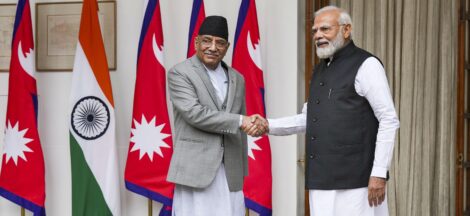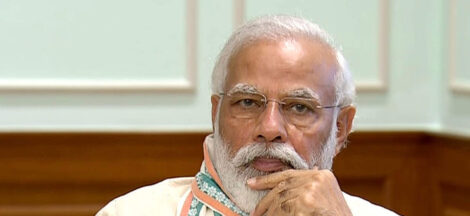By S. Sethuraman
The stakes are so high for Prime Minister Narendra Modi to deny the Congress, his arch-enemy, a second successive term in Karnataka – the only Southern state within the saffron grasp, if Kannadigas fall for his tantrums all the way.
If the Modi vituperative magic does not work as much as hoped for in Karnataka, it would mean that BJP, with its current majoritarian hold over the country and wayward policies, would find the going even tougher in the battle for Lok Sabha in 2019.
The kind of language that Mr Modi has employed in rallies across the regions to paint the Congress in the darkest colours has been roundly condemned in political circles as well as by former Prime Minister Dr Manmohan Singh as “unbecoming” for the position of Prime Minister.
Despite the slamming for BJP in Gujarat, the PM’s home state, though narrowly retained in Assembly election last year, and the series of by-poll losses for Lok Sabha and crucial Assembly seats in BJP-ruled states, UP, Rajasthan and M P, the party President Mr Amit Shah audaciously targets at 50 per cent of votes in 2019 for continued BJP/RSS dominance.. BJP and allies scored 31 per cent of votes in 2014.
Presently, Karnataka will provide the litmus test whether it can become the “Southern Gateway” to the South as a whole, for BJP, still considered a Northern party with its unilingual (enforcing Hindi) and sectarian (Hindutva) approaches. A North-South divide is already emerging and that reflects on Mr Modi’s style of governance which is seen to ignore basic interests, fiscal and developmental, of certain states in South.
. That Mr Modi, BJP President Mr Amit Shah and swarms of BJP Ministers deserting the national capital engaged themselves in hectic campaigning in Karnataka underlined the fears of losing again the “Southern Gateway” (after 2013) while the tide was seemingly in favour of Congress with not much of anti-incumbency in evidence.
Mr Siddharamaiah, the Chief Minister, also ranked at the top of choices for Chief Ministership among the three parties, including BJP and JD(S), in popularity polls. And apart from his fairly creditable record with welfare programmes and development, Mr Siddharamaiah has valiantly stood up to match Mr Modi’s barbs.
Indeed he has set a new record in sending a legal notice to the Prime Minister of India, Mr Narendra Modi, BJP President Mr Amit Shah and other leaders for making wild allegations against the Chief Minister. The Rs.100 crore legal notice charged Prime Minister Modi with “intentionally and maliciously” making “false and derogatory statements against Mr Siddharamaiah in public speeches by calling his Government “10% ki sarkar”, “Seeda Rupaiya Sarkar” etc.
The poll campaign, four days ahead of the May 12 election, was at its zenith with Mr Modi and Mr Shah for BJP, stepping up their propaganda designed to swing voters away from Congress, though the party lacked a popular chief ministerial face (Mr B Yeddyurappa, having been once removed from the party on corruption charges).
For the Congress, now under greater pressure from Mr Modi’s propaganda blasts, Mr Rahul Gandhi, joined by his mother, have kept up the momentum, not yielding ground. Former Prime Minister Deve Gowda and son Mr Kumaraswamy, a former Chief Minister, were equally confident of strong gains for JD(S) to form the Government by itself instead of a role of ‘king-maker’ it played in the past.
Mr Modi’s desperation is palpable for a win in Karnataka which he is seeking to secure by any means, call it baseless allegations or mis-statements. The reasons are obvious. Firstly, if BJP cannot wrest Karnataka from the Congress, it cannot claim to be the only pan-India party and Bharat would not have become “mukt Congress”. Its decisive voice will be mainly in the North and and Western India and to a smaller extent in North-eastern region.
Secondly, at the national level, the worry for BJP would be for Congress hold on Karnataka giving a new dynamic thrust to the regional parties moving closer to the Congress once the latter has consolidated itself with further gains in Rajasthan and Madhya Pradesh due for elections later in the year.
All these trends coupled with winning combinations of anti-BJP forces in states like UP, West Bengal, Odisha would make it too hard for Mr Modi to command a majority to run a Government with an authoritative style he revels in, as the country experienced over the last four years.
Prime Minister Modi must have calculated stalling the Congress in Karnataka would have helped him to ensure BJP retaining its strong hold in Madhya Pradesh and Rajasthan And that would have ideally helped BJP to go forward with its “New India” plans by 2022.
(IPA Service)
The post Modi Makes Karnataka Poll Acid Test For 2019 appeared first on Newspack by India Press Agency.


